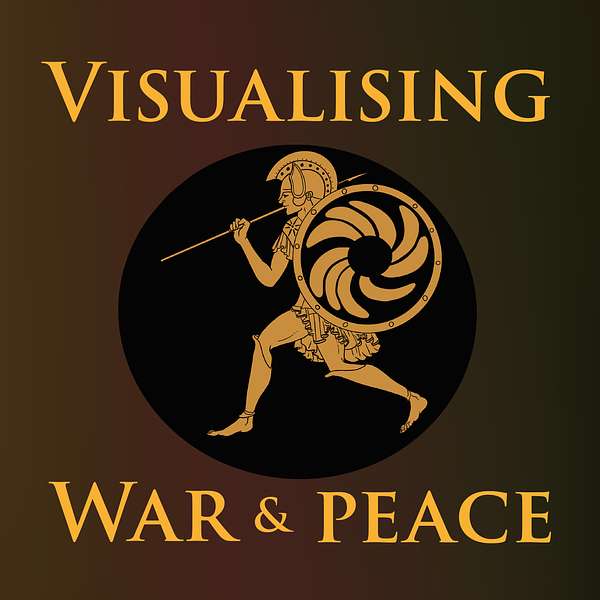
Visualising War and Peace
How do war stories work? And what do they do to us? Join University of St Andrews historian Alice König and colleagues as they explore how war and peace get presented in art, text, film and music. With the help of expert guests, they unpick conflict stories from all sorts of different periods and places. And they ask how the tales we tell and the pictures we paint of peace and war influence us as individuals and shape the societies we live in.
Visualising War and Peace
Transitional place-making: Palestinian refugee experiences in Lebanon
Use Left/Right to seek, Home/End to jump to start or end. Hold shift to jump forward or backward.
This episode is a follow-up to an earlier conversation with Anne Lene Stein which focused on peace activism in Israel and Palestine. We invited her back onto the podcast to share another important strand of research with us, based on her recent work with Palestinian refugees in Lebanon.
As several of our other episodes discuss, forced displacement is a recurring legacy of conflict all around the world. In recent years, wars in Syria, Afghanistan, Yemen, Ukraine, the DRC and Sudan (to name just a few) have displaced millions of people from their homes; and in recent months hundreds of thousands more people have been displaced within Gaza, sometimes multiple times. This is not a new phenomenon; as Anne underlines, Palestinians have been seeking sanctuary in many different places, for many years - including in Lebanon, where some Palestinians have been living as refugees for multiple generations.
Anne begins the conversation by explaining what drove so many Palestinian refugees to Lebanon in the first place, over 70 years ago; and how many continue to live in supposedly temporary refugee camps around the country. She describes the challenging living conditions in these camps, the lack of freedom and rights for their inhabitants, and the ways in which the camps are governed and controlled by both internal and external forces.
This leads to a particular focus of Anne's research: how young people, born and raised in these camps, construct their identities and visualise their futures. For many displaced Palestinians, retaining refugee status is crucial in holding on to the right to return home some day; but this comes with significant costs, perpetuating poverty and disenfranchisement. Anne discusses some of the ways in which young people in refugee camps in Lebanon try to overcome the stigma attached to being displaced, pushing back against dominant narratives; how they use different media and methods to imagine 'home' in new ways, overcoming the 'politics of temporality'; and how they employ everyday acts of resistance to exercise agency and take more control over their lives. This gets us talking about peace imaginaries as well as habits of visualising forced displacement.
We end the episode by considering what lessons we might learn from the experiences of Palestinian refugees in Lebanon as we seek better ways to support people newly displaced by conflict. As Anne underlines, we need to find political - not just humanitarian - solutions; and we should invest in solutions that maximise refugee rights and avoid re-victimising people.
We hope you find the discussion interesting. For a version of our podcast with close captions, please use this link. For more information about individuals and their projects, please visit the University of St Andrews' Visualising War website.
Music composed by Jonathan Young
Sound mixing by Zofia Guertin